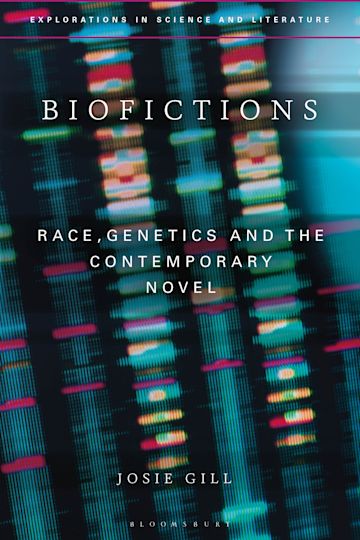The following is an excerpt from a conversation between Josie Gill and Michell Chresfield published in the LA Review of Books in August 2021. For the full conversation please click here.
How, as humanities scholars, can we approach race and science today, at a moment when certain biological ideas about race seem to be reappearing? There are white supremacist groups discussing (and misinterpreting) genetic studies on internet forums. The New York Times reported that white supremacists were “chugging” milk because they thought a genetic study was saying that white people were better able to digest milk than others. Trump has often talked about his belief in “good genes” — both his own and those of his followers — as a way of signalling the purported superiority of whiteness. So there are seemingly casual but also very prominent ideas about genetics entering public discourse.

|
In relation to COVID-19, recently the home secretary in the UK, Priti Patel, was trying to explain the different impact [of the disease] on Black and Asian communities in the UK. She implied that they are just somehow more susceptible to COVID-19, that there’s some kind of biological difference. Whether these ideas represent a return, or whether they have been there all along, there is no doubt that we are in a political moment where these discourses are gaining traction and there’s a return to a biological understanding of race. Approaching this situation as a literary scholar can be quite tricky. There has been an attack on scientific expertise [from the right], and so literary scholars can be under some pressure not to do anything that might undermine science. This is particularly the case for the understanding of race that was confirmed by the Human Genome Project; that race is not biological and has no genetic meaning. That is the established and predominant scientific view. In the main, literary approaches tend to adhere to this view, to support it, and many literary scholars are influenced by critical race scholarship in this regard. Scholars like Kwame Anthony Appiah, Henry Louis Gates Jr., and Paul Gilroy have in different ways brought genetic science into their work to support their own, pre-existing understanding of race; that it is not a genetic reality. You might ask, what’s wrong with that? I’m not disputing the finding of the HGP or saying that it is wrong, but what I find interesting in their usage of science, is that it marks a departure from how these scholars talk about science in the past. When these scholars discuss the historical construction of race in the 18th and 19th centuries, they acknowledge that it was an interdisciplinary idea — a construct created from many discourses including science, philosophy, and literature. In these analyses, science is understood as a product of its time, and the colonial context in particular. There’s an understanding that science was influenced by everything that was going on politically and socially at the time. However, when you turn to literary analyses of 21st-century science, you can see there’s a tendency to revert to a different stance toward science, treating it as an objective, neutral authority on race, and not as complicated or imbricated in culture as it was historically. I was interested to see how I could approach contemporary science by maintaining a focus on the political, social, and cultural contexts which have made certain ideas about race possible in 21st century. I’m drawing on the work of STS scholar Jenny Reardon, in doing this, and trying to expand her analysis and include the literary and cultural, to think about how that context enables certain ideas about race to emerge narratively. I’m not trying to undo the scientific finding that race isn’t genetic; I’m not saying “that’s not true”; I just want to understand the conditions that enabled this idea to gain traction. I don’t think it’s a coincidence that that idea came about at the same time as the rise of post-racial discourse at the beginning of this century. It seems strange to think of it now, post-BLM, but with Obama, there really was a widespread belief in the US and UK that we were entering a post-racial period and that racism was no longer an issue, that people of colour had gained a certain level of equality and that we were moving beyond race. The science of race was feeding into that political climate.
|
Dr Josie Gill
University of Bristol
Josie.gill@bristol.ac.uk

